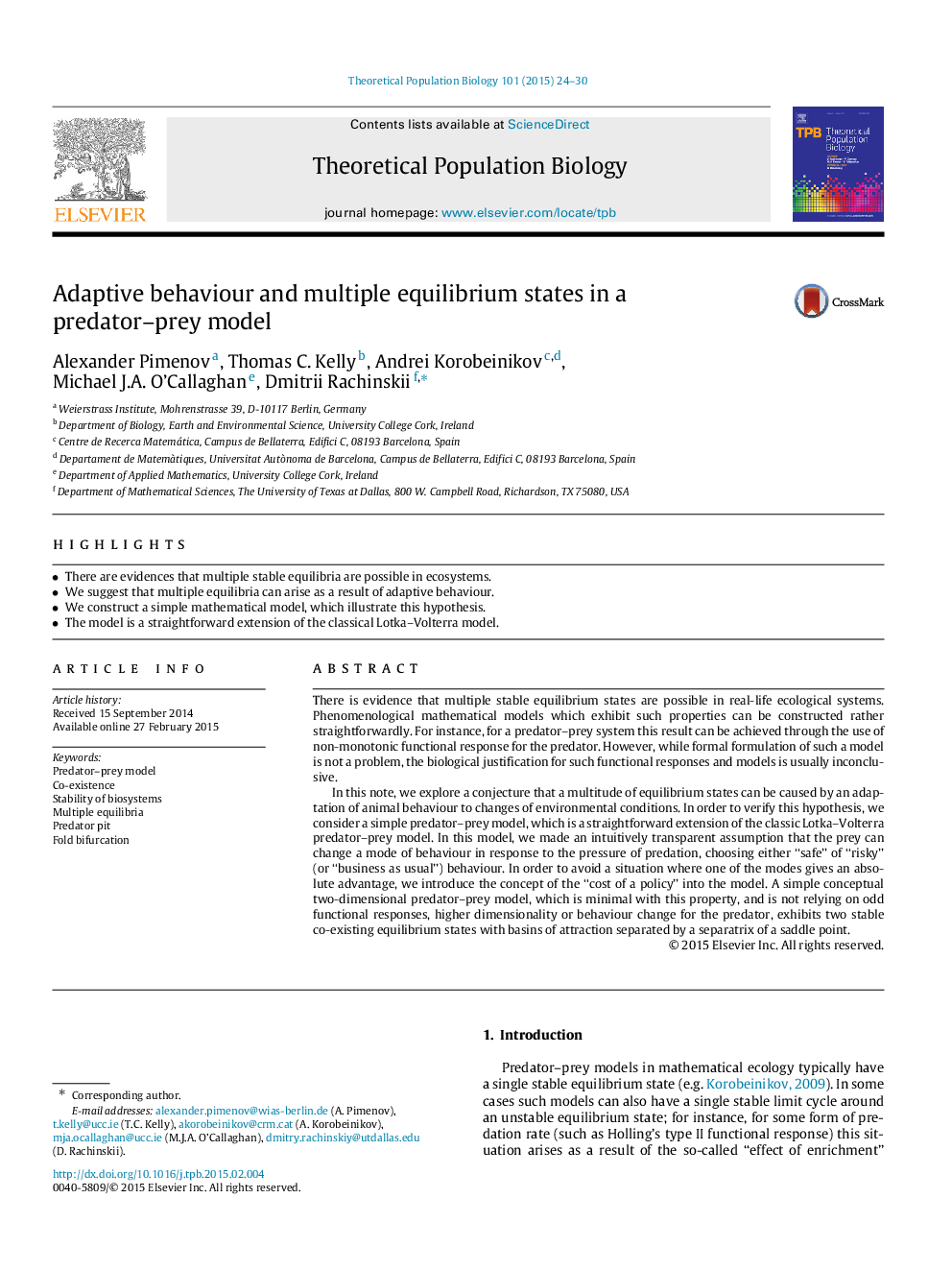| Article ID | Journal | Published Year | Pages | File Type |
|---|---|---|---|---|
| 6372326 | Theoretical Population Biology | 2015 | 7 Pages |
Abstract
In this note, we explore a conjecture that a multitude of equilibrium states can be caused by an adaptation of animal behaviour to changes of environmental conditions. In order to verify this hypothesis, we consider a simple predator-prey model, which is a straightforward extension of the classic Lotka-Volterra predator-prey model. In this model, we made an intuitively transparent assumption that the prey can change a mode of behaviour in response to the pressure of predation, choosing either “safe” of “risky” (or “business as usual”) behaviour. In order to avoid a situation where one of the modes gives an absolute advantage, we introduce the concept of the “cost of a policy” into the model. A simple conceptual two-dimensional predator-prey model, which is minimal with this property, and is not relying on odd functional responses, higher dimensionality or behaviour change for the predator, exhibits two stable co-existing equilibrium states with basins of attraction separated by a separatrix of a saddle point.
Related Topics
Life Sciences
Agricultural and Biological Sciences
Agricultural and Biological Sciences (General)
Authors
Alexander Pimenov, Thomas C. Kelly, Andrei Korobeinikov, Michael J.A. O'Callaghan, Dmitrii Rachinskii,
